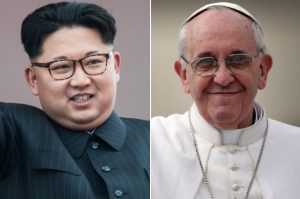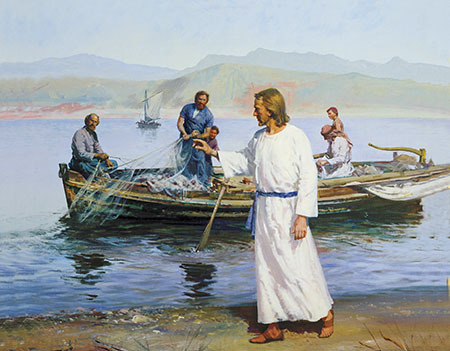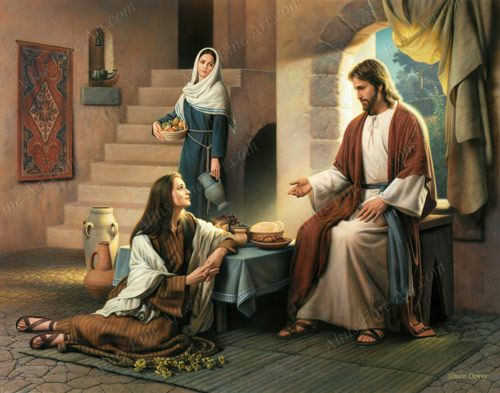Kim Jong Un souhaite que le pape lui rende visite à Pyongyang 
Le dirigeant nord-coréen Kim Jong Un espère la venue du pape François à Pyongyang, en expliquant qu’il serait le cas échéant « accueilli avec enthousiasme », a annoncé mardi la présidence sud-coréenne en précisant qu’elle relaiera prochainement le message au Vatican.
Le président sud-coréen Moon Jae-in a une audience prévue avec le pape le jeudi 18 octobre à la mi-journée et participera aussi la veille à la basilique Saint-Pierre à une « messe pour la paix » sur la péninsule coréenne, a précisé mardi le Saint-Siège.
« Lors de sa réunion avec le pape François, il relaiera le message du président Kim Jong Un selon lequel il accueillera avec enthousiasme le pape s’il vient à Pyongyang », a déclaré aux journalistes le porte-parole de M. Moon, Kim Eui-kyeom. Le porte-parole du Vatican, Greg Burke, n’a pas voulu commenter mardi l’éventualité d’un voyage du pape en Corée du nord. « Attendons que l’invitation arrive », a-t-il dit.
Après plusieurs années de tensions en raison des programmes nucléaire et balistique du Nord, la péninsule est depuis le début de l’année le théâtre d’une exceptionnelle détente, marquée notamment par trois sommets entre MM. Moon et Kim. Lors de la dernière rencontre intercoréenne, à Pyongyang en septembre, M. Moon était accompagné de l’archevêque sud-coréen Hyginus Kim Hee-joong.
Lors d’une conversation avec ce dernier, M. Kim l’a d’ailleurs exhorté à relayer auprès du Vatican son intention de construire la paix, selon la présidence sud-coréenne. La liberté de religion est inscrite dans la Constitution nord-coréenne. Mais toute activité religieuse est étroitement encadrée et totalement interdite en dehors de structures officielles.
Au début du XXe siècle, avant la division de la péninsule, Pyongyang était un centre religieux de première importance comptant de nombreuses églises et une communauté chrétienne qui lui valurent le surnom de « Jérusalem de l’Asie ».
Mais le fondateur du régime nord-coréen et grand-père de l’actuel leader, Kim Il Sung, considérait la religion chrétienne comme une menace contre son règne autoritaire et l’éradiqua au moyen notamment d’exécutions et d’internements dans des camps de travaux forcés. Depuis, le régime nord-coréen a autorisé des organisations catholiques à mener des projets d’aide sur son sol, mais il n’entretient aucune relation avec le Vatican.
Lors de sa visite en Corée du Sud en 2014, le pape François avait dit une messe spéciale à Séoul dédiée à la réunification coréenne.

 Some of us have experienced such a major disturbing encounter with God.
Some of us have experienced such a major disturbing encounter with God. On this Sunday (28th of Year A) we are given another of those parables well-known to us: the invitation to a wedding party (Mt.22:1-14).
On this Sunday (28th of Year A) we are given another of those parables well-known to us: the invitation to a wedding party (Mt.22:1-14).





